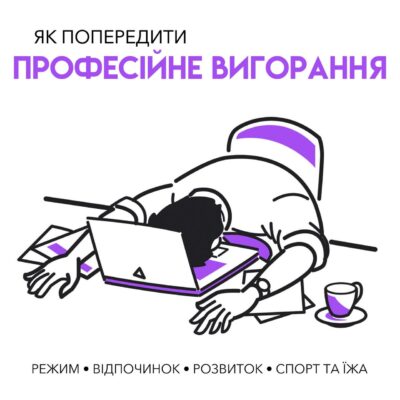Mode of the day. 8 hours for sleep, 8 hours for work and 8 hours for rest and communication.
Vacation. It must be of high quality. If we wait for the weekend, it comes and we don’t have anything planned, we spend a lot of time trying to think of something, and as a result we get frustrated because we didn’t manage to get quality rest over the weekend. This only increases burnout. Therefore, weekends, vacations and free evenings should be planned.
Sleep. It should be productive, we should make sure that we wake up refreshed in the morning. If this does not happen, you should adjust your regime and experimentally find your ideal sleep schedule.
Work rhythm. During the working day, it is important to alternate processes with high intensity of load and low: routine and creativity, high tempo and low, mental and mechanical work. And do not forget to take breaks, because our ability to concentrate is not unlimited. And you should also train yourself not to take work home.
Development. A good primary prevention of burnout is training: conferences, courses, professional development, additional skills.
Physical activity. When we exercise our muscles and cardiovascular system, we eliminate excess stress hormones. In response to physical exertion, hormones of happiness are produced: endorphin and dopamine. But it is important to understand that they are produced only in case of systematic physical exertion.
Food mode. You should not eat according to the principle of “something to snack on”, because sharp jumps in glucose affect productivity. It is necessary to monitor the balance of one’s diet: instead of simple carbohydrates, use complex ones, add protein food and fiber to the diet.
